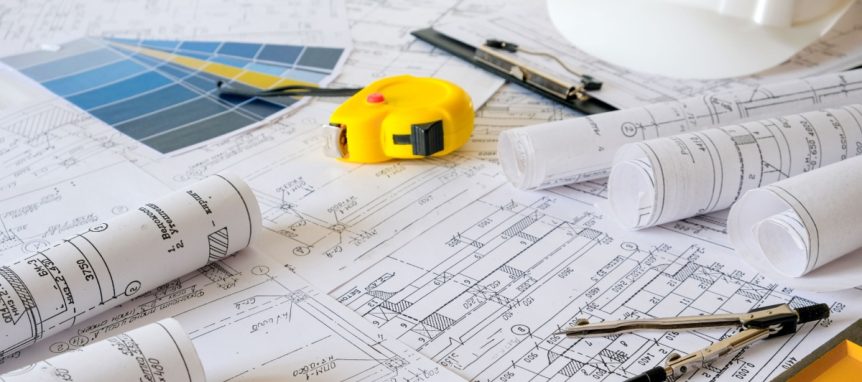Building a custom home or starting a commercial project is exciting, but the work begins long before the first shovel hits the ground. The pre-construction phase lays the foundation for a successful build, ensuring everything runs smoothly, stays within budget, and meets your expectations. Understanding this process helps you better prepare for what’s ahead and appreciate the behind-the-scenes effort that makes it all possible.
This phase involves much more than just planning. It requires a coordinated effort among professionals, clients, and local agencies to get all elements in place before construction officially begins. Here’s what happens during this critical time.
Initial Consultations and Vision Planning
The pre-construction journey begins with an in-depth consultation between the client and the project team. During this time, you’ll discuss your goals, desired features, style preferences, budget, and general vision. These early conversations help ensure the team understands your priorities and can align the scope of work accordingly. This is also when the team gathers information about the lot, zoning restrictions, and neighborhood requirements to determine if your vision is feasible within the site’s parameters.
Feasibility and Site Evaluation
Once your goals are outlined, the site evaluation begins. This step includes reviewing the condition of the land, soil quality, drainage, and existing utilities. The team will consider whether any demolition is needed or if site grading will be required. Local regulations, environmental concerns, flood zones, and elevation issues are also assessed at this stage. All of this information informs the project timeline, logistics, and even the design of the structure.
Design Development and Architectural Planning
With feasibility confirmed, the design phase begins in earnest. You’ll work with architects and designers to translate your vision into preliminary drawings. These conceptual plans are refined through ongoing collaboration until they reflect your ideal layout, style, and functionality. This process also includes choosing materials and finishes and ensuring the design meets local building codes. An experienced construction team can offer feedback during this phase to help maintain cost efficiency and reduce the risk of delays later in the process.
Engineering and Structural Planning
While architectural plans reflect how your home or building will look, engineering ensures it will be structurally sound. Civil, structural, mechanical, electrical, and plumbing engineers get involved to create detailed systems that work in harmony with the design. This includes load-bearing calculations, HVAC and electrical planning, and plumbing layout. Integrating these systems into the design early prevents costly changes later on and ensures your project complies with regulations.
Permitting and Approvals
Before construction can begin, a series of permits must be obtained. This step often includes submissions to the city, county, or HOA, depending on the location. The team will compile the necessary documentation, architectural drawings, and engineering plans for review by local authorities. Depending on where the project is located, this step can take weeks to several months. Delays here are common, which is why working with a team familiar with local requirements is crucial for staying on schedule.
Budget Finalization and Value Engineering
During the pre-construction phase, you’ll receive detailed cost estimates and project proposals based on the final plans. This is where value engineering plays a major role. The project team evaluates ways to maintain design integrity while reducing unnecessary expenses. This might involve recommending alternative materials or construction techniques that achieve the same aesthetic at a lower cost. The goal is to give you the best value for your investment without sacrificing quality or function.
Scheduling and Construction Timeline
Once the plans and permits are in place, the team creates a comprehensive construction schedule. This includes setting realistic start and completion dates, sequencing subcontractors, ordering materials in advance, and coordinating inspections. The schedule also accounts for weather patterns and potential delays, helping the project stay on track. By addressing every detail up front, the team minimizes disruptions and avoids costly surprises once the build begins.
Pre-Construction Agreements and Contracts
Before breaking ground, the final step is executing the necessary contracts. These documents formalize the scope of work, payment schedule, warranties, insurance coverage, and other legal details that protect both you and the builder. A reputable construction management team will walk you through the entire agreement, explain each section, and answer any questions. Once signed, the project is officially greenlit to move into the construction phase.
The Value of Pre-Construction Planning
Although it may seem like the pre-construction process delays the start of your build, it actually accelerates progress in the long run. Thorough planning reduces the likelihood of mid-project revisions, budget overruns, and communication breakdowns. By investing time upfront, you set the stage for a smoother, faster, and more predictable construction experience. Pre-construction is where problems are solved before they arise, ensuring your project begins with clarity and confidence.
Let the Right Team Guide You
Pre-construction is not just a checklist—it’s a critical process that requires deep industry knowledge and thoughtful execution. A skilled project management team brings together architects, engineers, vendors, and inspectors to make sure your build gets off to the right start. When you partner with experienced professionals like Paterson Project Management, you’re not just building a structure—you’re building peace of mind.
To learn more about the pre-construction process or to start planning your next project, contact us today. We’re here to help guide every step of your journey.

